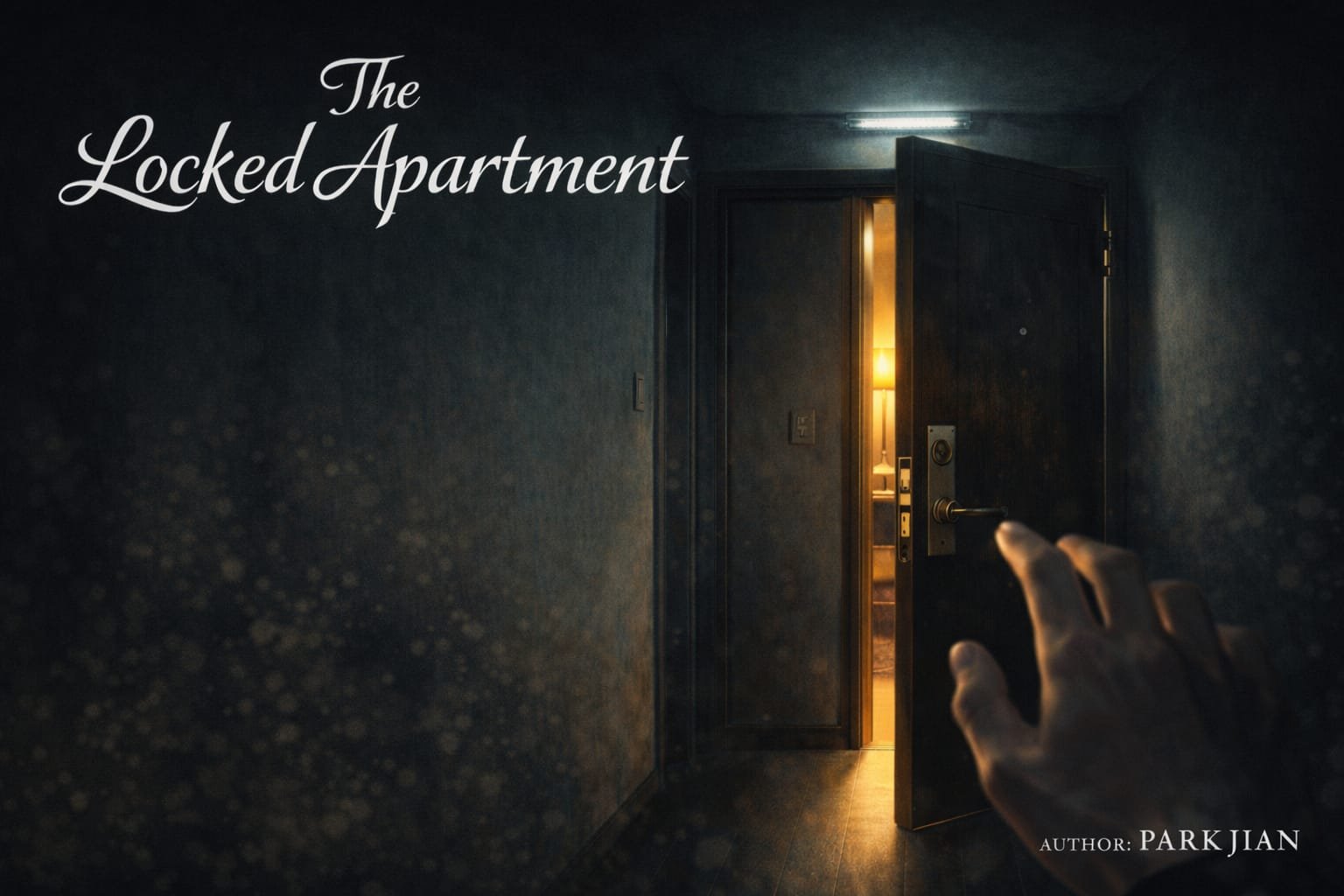“hobbies for women,” “creative hobbies for women,” “unique hobbies to explore,” “best hobbies for personal growth,” “fun activities for women,” “women’s hobbies ideas”
Life is a canvas, and hobbies are the colors you use to paint it with joy, creativity, and purpose. Whether you’re looking to unwind after a long day, express your creativity, or challenge yourself mentally and physically, there’s a hobby out there that’s perfect for you. In this blog, we’ll explore 30 fun and fulfilling hobbies for women , complete with detailed explanations, tips for getting started, and focus keywords to help you find exactly what you’re looking for. Let’s dive in and discover your next passion!

30 Fun and Fulfilling Hobbies for Women to Try This Year
Life is a canvas, and hobbies are the colors you use to paint it with joy, creativity, and purpose. Whether you’re looking to unwind after a long day, express your creativity, or challenge yourself mentally and physically, there’s a hobby out there that’s perfect for you. In this blog, we’ll explore 30 fun and fulfilling hobbies for women, complete with detailed explanations, tips for getting started, and focus keywords to help you find exactly what you’re looking for. Let’s dive in and discover your next passion!
Why Hobbies Are Important for Women
Before we jump into the list, let’s talk about why hobbies matter especially for women. Between juggling careers, family responsibilities, and personal goals, it’s easy to put your own needs on the back burner. Hobbies provide a much-needed escape, allowing you to:
- Relax and Recharge: Activities like knitting or gardening can be incredibly soothing, helping you unwind and de-stress.
- Boost Confidence: Mastering a new skill, whether it’s playing the piano or learning sign language, gives you a sense of accomplishment.
- Expand Your Social Circle: Joining clubs or classes introduces you to people who share your interests, fostering meaningful connections.
- Improve Mental Health: Creative hobbies like painting or writing stimulate your brain and foster mindfulness.
- Enhance Physical Health: Active hobbies like ice skating or tennis keep your body moving and energized.
Now that we know why hobbies matter, let’s dive into the fun part: exploring some of the most interesting hobbies you can try this year.
1. Pottery
Pottery is more than just shaping clay, it’s about creating something beautiful and functional with your own two hands. The tactile nature of working with clay makes pottery a deeply meditative and rewarding experience.
Why It Matters:
Pottery encourages mindfulness, as it requires focus and patience. It’s also a fantastic way to relieve stress and express your creativity. Plus, there’s nothing quite like the satisfaction of holding a mug or bowl you made yourself.
Getting Started:
- Find a Class: Many community centers and art studios offer beginner pottery classes. These classes typically provide all the tools and materials you’ll need to get started.
- Learn the Basics: Start with simple techniques like pinching, coiling, and slab building before moving on to using a pottery wheel.
- Practice Regularly: Like any skill, pottery improves with practice. Set aside time each week to experiment with different shapes and designs.
Personal Reflection:
When I first tried pottery, I was amazed at how calming it felt to center the clay on the wheel. Even when my creations didn’t turn out perfectly, the process itself was therapeutic. Over time, I began to see improvement, and now I have a collection of handmade pieces I’m proud of.
2. Painting
Painting allows you to express your emotions, tell stories, and bring your imagination to life. Whether you prefer watercolors, acrylics, or oils, painting offers endless possibilities for creativity.
Why It Matters:
Painting is not only a form of self-expression but also a great way to relax and unwind. Studies show that engaging in creative activities like painting can reduce stress and improve mental well-being.
Getting Started:
- Gather Supplies: You don’t need expensive materials to get started. A basic set of paints, brushes, and paper or canvas will do.
- Follow Tutorials: Platforms like YouTube and Skillshare offer free tutorials for beginners. Start with simple projects like landscapes or still-life paintings.
- Experiment Freely: Don’t worry about perfection, focus on enjoying the process. Over time, you’ll develop your own style.
Tip: If you’re unsure where to begin, try abstract painting. It’s less intimidating and allows you to play with colors and textures without worrying about realism.
Personal Reflection:
Painting became my go-to activity during stressful times. There’s something magical about watching colors blend and transform on the canvas. It’s like therapy for the soul.
“painting tips for beginners,” “best painting supplies for artists,” “how to improve painting skills.”
3. Drawing
Drawing is one of the most accessible forms of artistic expression. All you need is a pencil and paper to get started, making it an affordable and portable hobby.
Why It Matters:
Drawing sharpens observation skills, enhances hand-eye coordination, and fosters creativity. It’s also a great way to document your surroundings or capture fleeting moments.
Getting Started:
- Start Simple: Begin with basic shapes and lines. Practice sketching everyday objects like cups, books, or flowers.
- Use References: Look at photos or real-life objects to guide your drawings. Websites like Unsplash offer free high-quality images.
- Try Different Styles: Experiment with pencil sketches, charcoal drawings, or digital art to find what resonates with you.
Fun Fact: Many famous artists started by copying the works of others. Studying masterpieces can teach you valuable techniques and inspire your own creations.
Personal Reflection:
I used to think I wasn’t “good” at drawing, but once I stopped comparing myself to others and focused on enjoying the process, I realized how fulfilling it could be. Now, I carry a sketchbook wherever I go.
“drawing ideas for beginners,” “how to draw step-by-step,” “best drawing apps for artists.”
4. Candle Making
Candle making combines creativity with practicality. Not only do you end up with beautiful, fragrant candles, but you also gain a deeper appreciation for craftsmanship.
Why It Matters:
Candle making is a relaxing and rewarding hobby. It allows you to customize scents and designs, creating personalized gifts or home decor items. Plus, it’s a great way to save money on store-bought candles.
Getting Started:
- Invest in a Kit: Beginner candle-making kits include everything you need—wax, wicks, fragrance oils, and molds.
- Choose Your Scent: Experiment with essential oils or fragrance blends to create unique aromas.
- Decorate Creatively: Add dried flowers, glitter, or colored wax layers to make your candles stand out.
Tip: Soy wax is eco-friendly and burns cleaner than paraffin wax, making it a popular choice among hobbyists.
Personal Reflection:
Making candles became my favorite weekend activity. I love gifting them to friends and family—they always appreciate the thoughtfulness behind handmade presents.
“DIY candle making ideas,” “how to scent candles naturally,” “best candle making supplies.”
5. Calligraphy
Calligraphy is the art of beautiful handwriting. Whether you’re addressing envelopes, designing invitations, or simply practicing strokes, calligraphy adds elegance and personality to everything you create.
Why It Matters:
Calligraphy promotes mindfulness and precision. It’s also a versatile skill that can be applied to various projects, from wedding decor to bullet journaling.
Getting Started:
- Get the Right Tools: Invest in a beginner-friendly calligraphy pen or brush pen set. Brands like Tombow and Pentel are highly recommended.
- Practice Strokes: Focus on mastering basic strokes (upstrokes, downstrokes) before attempting full letters or words.
- Follow Tutorials: Online platforms like YouTube and Skillshare offer step-by-step guides for beginners.
Personal Reflection:
At first, I found calligraphy frustrating because my lines weren’t smooth. But with consistent practice, I noticed significant improvement. Now, I use it to add flair to greeting cards and planners.
“calligraphy tips for beginners,” “how to improve calligraphy skills,” “best calligraphy tutorials online.”
6. Scrapbooking
Scrapbooking is a creative way to preserve memories. By combining photos, mementos, and decorative elements, you can create keepsakes that tell your story.
Why It Matters:
Scrapbooking is nostalgic and sentimental. It allows you to relive special moments while expressing your creativity through design.
Getting Started:
- Gather Materials: Collect scrapbook paper, adhesive, scissors, and embellishments like stickers or washi tape.
- Organize Photos: Sort through old pictures and choose themes for your pages (e.g., vacations, birthdays).
- Be Creative: Mix textures, colors, and patterns to make each page unique.
Tip: Use acid-free materials to ensure your scrapbook lasts for years without fading or deteriorating.
Personal Reflection:
Creating my first scrapbook felt overwhelming, but once I got into the flow, it became incredibly therapeutic. Flipping through finished pages brings back so many happy memories.
“scrapbooking tips for beginners,” “how to organize a scrapbook,” “best scrapbooking supplies.”
7. Soap Making
Soap making is a delightful blend of science and creativity. Crafting your own soap allows you to control ingredients, experiment with scents, and create products tailored to your skin type.
Why It Matters:
Soap making is both practical and artistic. It’s a satisfying way to pamper yourself or give thoughtful handmade gifts. Plus, it reduces reliance on commercial products filled with harsh chemicals.
Getting Started:
- Choose a Method: Start with melt-and-pour kits if you’re a beginner; they’re safer and easier than cold-process soap making.
- Pick Ingredients: Incorporate natural oils, herbs, or exfoliants like oatmeal or coffee grounds.
- Customize Designs: Swirl colors, embed dried flowers, or stamp your name onto bars for a personal touch.
Personal Reflection:
I fell in love with soap making because it feels like alchemy—transforming raw materials into something luxurious. My lavender-scented bars are now a staple in my bathroom.
“DIY soap making ideas,” “how to scent homemade soap,” “best soap making recipes.”
8. Embroidery
Embroidery is a timeless craft that transforms fabric into works of art. With needles, threads, and a little patience, you can create intricate designs that dazzle.
Why It Matters:
Embroidery is meditative and portable, making it perfect for quiet evenings or travel. It’s also a wonderful way to personalize clothing, bags, or home decor.
Getting Started:
- Select a Kit: Beginner kits often come with pre-printed fabric and instructions, taking the guesswork out of pattern transfer.
- Learn Basic Stitches: Master foundational stitches like satin, backstitch, and French knots before tackling complex designs.
- Experiment with Colors: Play with thread shades to add depth and dimension to your projects.
Personal Reflection:
Embroidery became my escape during hectic weeks. Watching colorful threads come together into a cohesive design feels like magic every time.
“embroidery tips for beginners,” “how to improve embroidery skills,” “best embroidery patterns.”
9. Tie-Dye
Tie-dye is a vibrant and playful hobby that allows you to transform plain fabrics into colorful masterpieces. Whether you’re customizing t-shirts, tote bags, or pillowcases, tie-dye is an easy and fun way to express your creativity.
Why It Matters:
Tie-dye is not only a great way to personalize your wardrobe but also a fantastic activity for parties, family gatherings, or solo crafting sessions. The process of folding, twisting, and dyeing fabric is surprisingly therapeutic and rewarding.
Getting Started:
- Gather Supplies: You’ll need fabric dye, rubber bands, gloves, and plain white cotton items (like shirts or socks).
- Choose a Technique: Experiment with classic spiral patterns, crumple designs, or stripes. Each technique creates a unique look.
- Have Fun with Colors: Mix and match bold hues or stick to pastel shades—there’s no wrong way to tie-dye!
Tip: Use squeeze bottles for precise application of dye, and let your creations sit overnight for the brightest results.
Personal Reflection:
I hosted a tie-dye party with friends last summer, and it was such a hit! We laughed, experimented with colors, and ended up with one-of-a-kind outfits that we still wear today.
“tie-dye ideas for beginners,” “how to make tie-dye patterns,” “best tie-dye kits for adults.”
10. Writing
Writing is a powerful tool for self-expression, storytelling, and reflection. Whether you’re jotting down thoughts in a journal, crafting short stories, or penning poetry, writing can be both cathartic and inspiring.
Why It Matters:
Writing helps you process emotions, organize your thoughts, and unleash your imagination. It’s also a portable hobby—you can write anywhere, anytime.
Getting Started:
- Start Small: Begin with journaling or free-writing exercises. Write about your day, dreams, or random musings.
- Try Prompts: Use writing prompts like “What would happen if you woke up in a parallel universe?” to spark creativity.
- Explore Different Styles: Experiment with fiction, non-fiction, poetry, or even songwriting to find what resonates with you.
Fun Fact: Many famous authors started by keeping journals or writing short pieces for fun. Who knows? Your hobby might turn into a passion project or even a career!
Personal Reflection:
Writing has been my safe space for years. Whenever I feel overwhelmed, putting pen to paper helps me untangle my thoughts and find clarity.
“creative writing tips for beginners,” “how to overcome writer’s block,” “best writing apps for hobbyists.”
11. Baking
Baking is a deliciously satisfying hobby that combines precision, creativity, and a dash of magic. From cookies to cakes, baking lets you create edible works of art while filling your home with delightful aromas.
Why It Matters:
Baking is not just about food—it’s about sharing love, celebrating milestones, and indulging in sweet treats. Plus, mastering a tricky recipe gives you a huge sense of accomplishment.
Getting Started:
- Stock Your Pantry: Invest in essentials like flour, sugar, eggs, and baking powder.
- Follow Recipes Closely: Precision is key in baking, so measure ingredients carefully.
- Experiment Gradually: Once you’ve mastered basics like chocolate chip cookies, try more complex recipes like macarons or cheesecakes.
Tip: Don’t be afraid to fail—some of the best bakers learned through trial and error. And remember, even imperfect desserts taste amazing!
Personal Reflection:
There’s nothing quite like the joy of pulling a perfectly golden cake out of the oven. My family always looks forward to my weekend baking experiments.
“easy baking recipes for beginners,” “how to decorate baked goods,” “best baking tools for home cooks.”
12. Wine Tasting
Wine tasting is a sophisticated yet relaxing hobby that introduces you to flavors, aromas, and cultures from around the world. Whether you’re sipping at home or visiting vineyards, this hobby pairs well with food and conversation.
Why It Matters:
Wine tasting educates your palate, enhances dining experiences, and introduces you to global traditions. It’s also a social activity that brings people together.
Getting Started:
- Start with Affordable Bottles: Explore different varietals like Chardonnay, Merlot, or Pinot Noir to identify preferences.
- Take Notes: Keep a journal to track taste profiles and favorite wines.
- Pair Wines with Food: Experiment with complementary pairings, such as red wine with steak or white wine with seafood.
Tip: Join a wine club to receive curated selections delivered to your door. Many clubs offer educational materials to deepen your knowledge.
Personal Reflection:
Attending my first wine-tasting event opened my eyes to the complexity and beauty of winemaking. Now, I host monthly tastings with friends—it’s become a cherished tradition.
“how to appreciate wine,” “best wine regions to explore,” “wine pairing tips for beginners.”
13. Cooking
Cooking is a versatile and practical hobby that allows you to experiment with flavors, textures, and techniques. Whether you’re whipping up comfort food or exploring exotic dishes, cooking is a skill that pays dividends every day.
Why It Matters:
Cooking boosts confidence, saves money, and promotes healthier eating habits. It’s also a creative outlet that encourages experimentation and innovation.
Getting Started:
- Learn the Basics: Master knife skills, seasoning techniques, and fundamental recipes like pasta or stir-fries.
- Explore International Cuisine: Try making sushi, curry, tacos, or paella to broaden your culinary horizons.
- Host Dinner Nights: Invite friends over to showcase your new skills and gather feedback.
Personal Reflection:
Cooking became my therapy during stressful times. The rhythmic chopping, stirring, and tasting helped me stay grounded and focused.
14. Songwriting
Songwriting is a deeply personal and expressive hobby that allows you to channel emotions into lyrics and melodies. Whether you’re strumming a guitar or humming tunes, songwriting is a beautiful way to tell your story.
Why It Matters:
Songwriting fosters creativity, improves communication skills, and provides a platform for self-expression. It’s also a collaborative hobby if you team up with musicians or producers.
Getting Started:
- Start Simple: Write about your feelings, experiences, or observations. Focus on creating a catchy chorus.
- Use Music Theory Basics: Learn chord progressions and scales to structure your melodies.
- Record Your Ideas: Use a voice memo app or recording software to capture spontaneous inspiration.
Tip: Collaborate with others—even if they’re just giving feedback. A fresh perspective can elevate your work.
Personal Reflection:
Writing my first song felt vulnerable but empowering. Hearing it come to life gave me a sense of pride I hadn’t experienced before.
“how to compose music,” “best songwriting apps,” “inspirational songwriting prompts.”
15. Astronomy
Astronomy is a fascinating hobby that connects you to the vastness of the universe. Gazing at stars, planets, and galaxies reminds us of our place in the cosmos and ignites curiosity about the mysteries of space.
Why It Matters:
Astronomy inspires wonder and scientific inquiry. It’s also a peaceful hobby that encourages mindfulness and appreciation for nature.
Getting Started:
- Download Apps: Use apps like SkyView or Stellarium to identify constellations and planets.
- Invest in Binoculars or a Telescope: Start with affordable options before upgrading to advanced equipment.
- Join Local Clubs: Many communities have astronomy groups that organize stargazing events and workshops.
Personal Reflection:
One clear night, I set up a blanket in my backyard and spent hours identifying constellations. It was humbling and awe-inspiring—a reminder of how small yet connected we all are.
“how to stargaze at home,” “best astronomy books for beginners,” “where to see meteor showers.”
16. Knitting
Knitting is a cozy and calming hobby that produces warm, handmade creations like scarves, hats, and blankets. It’s perfect for those who enjoy working with their hands and seeing tangible results.
Why It Matters:
Knitting reduces stress, improves focus, and provides a sense of accomplishment. Plus, it’s a practical skill—you can create gifts for loved ones or items for yourself.
Getting Started:
- Gather Supplies: You’ll need yarn (medium-weight is easiest for beginners), knitting needles, and a simple pattern.
- Learn Basic Stitches: Start with the knit stitch and purl stitch—the foundation of most projects.
- Choose a Beginner-Friendly Project: Scarves are ideal because they’re straightforward and forgiving.
Tip: Watch video tutorials on YouTube for step-by-step guidance. Seeing someone demonstrate techniques can make learning easier.
Personal Reflection:
I picked up knitting during a cold winter, and it quickly became my go-to evening activity. There’s something incredibly soothing about the rhythmic clicking of needles and watching rows build into something beautiful.
“knitting tips for beginners,” “how to read knitting patterns,” “best knitting kits for adults.”
17. Sewing
Sewing is a versatile and empowering hobby that lets you create clothing, accessories, or home decor. Whether you’re mending clothes or designing outfits, sewing gives you control over your wardrobe and style.
Why It Matters:
Sewing saves money, reduces waste, and fosters creativity. It’s also a sustainable hobby—repurposing old fabrics or clothes aligns with eco-friendly values.
Getting Started:
- Invest in a Sewing Machine: Look for beginner-friendly models like Singer or Brother brands. Alternatively, start hand-sewing to save costs.
- Learn the Basics: Practice threading needles, stitching straight lines, and using a seam ripper (you’ll need it!).
- Start Small: Begin with simple projects like pillowcases, tote bags, or hemming pants.
Fun Fact: Many fashion designers started by sewing their own clothes at home. Who knows? Your hobby might inspire a passion for design.
Personal Reflection:
When I first tried sewing, I was intimidated by the machine. But once I completed my first project—a quirky patchwork skirt—I felt unstoppable. Now, I love customizing thrift store finds to fit my personal style.
“how to sew for beginners,” “best sewing tutorials online,” “easy sewing projects for women.”
18. Beekeeping
Beekeeping is an unusual yet rewarding hobby that connects you with nature while supporting pollinators essential for our ecosystem. If you’re fascinated by bees and want to contribute to environmental sustainability, this could be your calling.
Why It Matters:
Beekeeping promotes biodiversity, supports local agriculture, and provides delicious honey as a bonus. It’s also educational—you’ll learn about hive dynamics, pollination, and ecosystems.
Getting Started:
- Research Local Regulations: Some areas require permits or have restrictions on keeping bees.
- Take a Class: Many beekeeping associations offer workshops for beginners.
- Set Up Your Hive: Purchase or build a hive and introduce a colony of bees. Start small to manage expectations.
Tip: Wear protective gear and stay calm around the bees—they’re less likely to sting if you move slowly and confidently.
Personal Reflection:
Visiting a friend’s apiary sparked my interest in beekeeping. Watching the bees work together harmoniously reminded me of the importance of community and balance in life.
“how to care for bees,” “best equipment for beginner beekeepers,” “environmental benefits of beekeeping.”
19. Play the Piano
Playing the piano is a timeless and elegant hobby that combines artistry with technical skill. Whether you dream of performing classical pieces or simply playing pop songs, the piano offers endless possibilities.
Why It Matters:
Playing an instrument enhances cognitive function, boosts memory, and relieves stress. The piano, in particular, is beginner-friendly because its keys are laid out visually, making it easier to understand music theory.
Getting Started:
- Choose an Instrument: Decide between an acoustic piano or a digital keyboard. Digital pianos are affordable and portable.
- Learn the Basics: Focus on finger placement, scales, and reading sheet music. Apps like Simply Piano or Flowkey can guide you.
- Practice Consistently: Even 15 minutes a day can lead to significant progress over time.
Personal Reflection:
Learning the piano taught me patience and perseverance. My favorite part? Playing holiday tunes for family gatherings—it always brings everyone closer.
“piano practice tips for beginners,” “how to teach yourself piano,” “best piano songs for beginners.”
20. Play the Violin
The violin is a challenging yet deeply rewarding instrument. Its rich, expressive sound makes it a standout choice for anyone interested in music.
Why It Matters:
Playing the violin improves posture, coordination, and discipline. It’s also a great way to express emotions through melodies.
Getting Started:
- Rent Before Buying: Violins can be expensive, so rent one initially to ensure it’s the right fit.
- Take Lessons: A teacher can help you avoid bad habits early on. Online platforms like Fiddlerman offer free resources.
- Be Patient: The violin has a steep learning curve, but persistence pays off. Celebrate small victories along the way.
Tip: Rosin your bow regularly and keep your instrument tuned—it makes a world of difference in sound quality.
Personal Reflection:
At first, I sounded like a screeching cat, but with consistent practice, I began producing melodies I could recognize. Now, playing the violin feels like second nature.
“how to improve violin skills,” “best apps for learning violin,” “common mistakes when learning violin.”
21. Chess
Chess is a strategic and intellectual hobby that sharpens your mind and teaches critical thinking. Whether you play casually or competitively, chess challenges you to think several steps ahead.
Why It Matters:
Chess improves problem-solving skills, concentration, and memory. It’s also a social hobby—you can join clubs or compete in tournaments.
Getting Started:
- Learn the Rules: Familiarize yourself with piece movements and basic tactics. Websites like Chess.com offer free lessons.
- Practice Regularly: Solve puzzles and play against opponents of varying skill levels.
- Analyze Your Games: Review past matches to identify areas for improvement.
Fun Fact: Chess has been shown to delay cognitive decline in older adults. It’s never too late to start!
Personal Reflection:
I joined a chess club last year, and it completely changed how I approach problems—not just in games, but in real life too. Every match feels like a mental workout.
“how to win at chess,” “best chess books for beginners,” “online chess communities.”
22. Sign Language
Learning sign language is a meaningful and inclusive hobby that opens doors to communication with the Deaf community. It’s also a valuable skill in healthcare, education, and customer service fields.
Why It Matters:
Sign language fosters empathy, broadens cultural understanding, and enhances non-verbal communication skills. Plus, it’s a universal language that transcends spoken words.
Getting Started:
- Use Online Resources: Platforms like ASL University or apps like SignSchool offer structured courses.
- Practice Daily: Repetition is key—practice fingerspelling and common phrases regularly.
- Engage with the Community: Attend Deaf events or join local signing groups to immerse yourself.
Tip: Watch videos of fluent signers to pick up nuances in facial expressions and body language—they’re integral to ASL.
Personal Reflection:
Learning sign language gave me a deeper appreciation for accessibility and inclusion. Communicating without words feels magical and profound.
“how to master ASL,” “best sign language classes online,” “importance of learning sign language.”
23. Learn a Language
Learning a new language is a transformative hobby that expands your worldview and connects you with diverse cultures. Whether you’re traveling abroad or chatting with international friends, speaking another language enriches your experiences.
Why It Matters:
Language learning improves memory, multitasking, and cultural awareness. It’s also a gateway to opportunities in travel, work, and relationships.
Getting Started:
- Pick a Language: Choose one based on interest, necessity, or proximity to native speakers.
- Use Apps: Duolingo, Babbel, and Memrise gamify the process, making it fun and engaging.
- Immerse Yourself: Watch movies, listen to music, or read books in your target language.
Tip: Practice daily—even 10 minutes counts. Consistency is more important than cramming.
Personal Reflection:
I started learning Spanish to connect with my heritage, and it opened up a whole new world. Ordering food in Madrid felt like a triumph!
“how to stay motivated while learning languages,” “best ways to practice a new language,” “language exchange programs.”
24. Sudoku
Sudoku is a classic logic-based puzzle game that challenges your brain and sharpens your problem-solving skills. It’s perfect for anyone who enjoys numbers, patterns, and mental workouts.
Why It Matters:
Sudoku improves concentration, memory, and analytical thinking. It’s also a portable hobby—you can solve puzzles on paper, in books, or on apps while commuting or relaxing at home.
Getting Started:
- Start Simple: Begin with easy puzzles to understand the rules and build confidence.
- Learn Strategies: Familiarize yourself with techniques like scanning, cross-hatching, and penciling in possibilities.
- Graduate to Harder Levels: As you improve, tackle medium and hard puzzles to keep challenging yourself.
Tip: Use pencil marks (small numbers in empty squares) to track possible answers—it’s a lifesaver for tougher grids.
Personal Reflection:
I started doing Sudoku during long flights, and it quickly became my go-to activity for downtime. Completing a difficult puzzle gives me a sense of accomplishment that’s hard to beat.
“how to get better at sudoku,” “best sudoku books for beginners,” “daily sudoku tips.”
25. Gardening
Gardening is a grounding and therapeutic hobby that connects you with nature. Whether you’re growing flowers, herbs, or vegetables, gardening allows you to nurture life and watch it flourish.
Why It Matters:
Gardening reduces stress, promotes physical activity, and provides fresh produce or beautiful blooms. It’s also a sustainable hobby that encourages eco-friendly practices like composting and water conservation.
Getting Started:
- Choose Your Space: Decide whether you’ll garden indoors, outdoors, or on a balcony. Container gardening is great for small spaces.
- Pick Beginner-Friendly Plants: Start with low-maintenance options like succulents, basil, tomatoes, or marigolds.
- Learn the Basics: Understand sunlight, soil types, and watering schedules to give your plants the best care.
Fun Fact: Studies show that interacting with soil releases serotonin, which boosts mood—making gardening truly a “happy” hobby!
Personal Reflection:
My first attempt at gardening was disastrous I overwatered everything! But after some trial and error, I now have a thriving herb garden that supplies my kitchen. Watching seeds sprout into plants feels like magic every time.
“how to grow vegetables at home,” “best gardening tools for beginners,” “indoor gardening ideas.”
26. Ice Skating
Ice skating is a graceful and exhilarating hobby that combines athleticism with artistry. Whether you dream of gliding across the ice or performing spins and jumps, this sport offers endless opportunities for fun and fitness.
Why It Matters:
Ice skating improves balance, coordination, and cardiovascular health. It’s also a social activity—you can skate with friends or join group lessons.
Getting Started:
- Find a Rink: Look for local ice rinks that offer beginner classes or open skating sessions.
- Wear Proper Gear: Rent skates initially to ensure comfort and fit before investing in your own pair.
- Take Lessons: A coach can teach you proper techniques and help prevent injuries.
Tip: Practice falling safely—it’s part of learning! Bend your knees and tuck your arms to minimize impact.
Personal Reflection:
Falling repeatedly during my first lesson was frustrating, but once I got the hang of balancing, I couldn’t stop smiling. Ice skating has become my favorite winter pastime.
“how to skate for beginners,” “best ice skating gear for women,” “benefits of ice skating.”
27. Roller Skating
Roller skating is a nostalgic and fun hobby that’s making a comeback. Whether you’re cruising around the park or grooving to music at a rink, roller skating is a fantastic way to stay active and have fun.
Why It Matters:
Roller skating builds strength, endurance, and agility. It’s also a joyful activity that brings back childhood memories for many.
Getting Started:
- Choose Your Skates: Opt for quad skates if you prefer stability or inline skates for speed.
- Practice Balance: Start by walking in your skates to get used to the feel.
- Join a Community: Many cities have roller derby leagues or casual skating groups where you can meet fellow enthusiasts.
Tip: Wear protective gear like helmets, knee pads, and wrist guards to stay safe while learning.
Personal Reflection:
I rediscovered roller skating last summer, and it felt like stepping back in time. The wind in my hair and the rhythm of the wheels made me fall in love with it all over again.
“how to roller skate safely,” “best roller skating tutorials online,” “fun roller skating tricks.”
28. Ballet
Ballet is a timeless and elegant hobby that combines grace, strength, and discipline. While often associated with children, adults can enjoy ballet too—it’s never too late to start!
Why It Matters:
Ballet improves posture, flexibility, and core strength. It’s also a meditative practice that encourages mindfulness and self-expression.
Getting Started:
- Find a Class: Look for studios offering adult beginner classes or drop-in sessions.
- Invest in Ballet Shoes: Soft leather or canvas slippers are ideal for newcomers.
- Focus on Fundamentals: Learn basic positions like plié, tendu, and arabesque before attempting advanced moves.
Tip: Don’t compare yourself to others—everyone progresses at their own pace. Celebrate your progress, no matter how small.
Personal Reflection:
Taking ballet classes as an adult was intimidating at first, but it turned out to be incredibly empowering. Standing en pointe for the first time felt like defying gravity!
“how to start ballet as an adult,” “best ballet exercises for beginners,” “benefits of ballet for women.”
29. Tennis
Tennis is a dynamic and competitive hobby that keeps you physically fit while fostering strategic thinking. Whether you play singles or doubles, tennis is a great way to stay active and socialize.
Why It Matters:
Tennis improves cardiovascular health, agility, and hand-eye coordination. It’s also a lifelong sport—you can play well into your golden years.
Getting Started:
- Find a Court: Check local parks or clubs for public courts.
- Take Lessons: A coach can teach you proper strokes, footwork, and serving techniques.
- Play Regularly: Consistency is key to improving your skills and stamina.
Tip: Use lighter-weight rackets initially—they’re easier to handle and reduce strain on your arm.
Personal Reflection:
I joined a recreational tennis league last year, and it’s been amazing for meeting new people and staying fit. Winning a match feels incredible, but even losing teaches valuable lessons.
“how to improve tennis skills,” “best tennis drills for beginners,” “how to choose a tennis racket.”
30. Astronomy
Astronomy is a fascinating hobby that connects you to the vastness of the universe. Gazing at stars, planets, and galaxies reminds us of our place in the cosmos and ignites curiosity about the mysteries of space.
Why It Matters:
Astronomy inspires wonder and scientific inquiry. It’s also a peaceful hobby that encourages mindfulness and appreciation for nature.
Getting Started:
- Download Apps: Use apps like SkyView or Stellarium to identify constellations and planets.
- Invest in Binoculars or a Telescope: Start with affordable options before upgrading to advanced equipment.
- Join Local Clubs: Many communities have astronomy groups that organize stargazing events and workshops.
Personal Reflection:
One clear night, I set up a blanket in my backyard and spent hours identifying constellations. It was humbling and awe-inspiring—a reminder of how small yet connected we all are.
“how to stargaze at home,” “best astronomy books for beginners,” “where to see meteor showers.”
Final Thoughts: Find What Lights You Up
Trying new hobbies is one of the best ways to inject excitement and purpose into your life. Whether you choose to pick up a paintbrush, shape clay, or glide across the ice, the key is to have fun and embrace the process. Remember, hobbies don’t have to lead to mastery—they’re meant to enrich your life and bring joy.
So, pick one or two hobbies from this list and give them a shot. Who knows? You might stumble upon a lifelong passion or meet amazing people along the way. Whatever you choose, remember this: your time is precious, and it deserves to be spent doing things that light you up.
You’ve got this. 🌟







